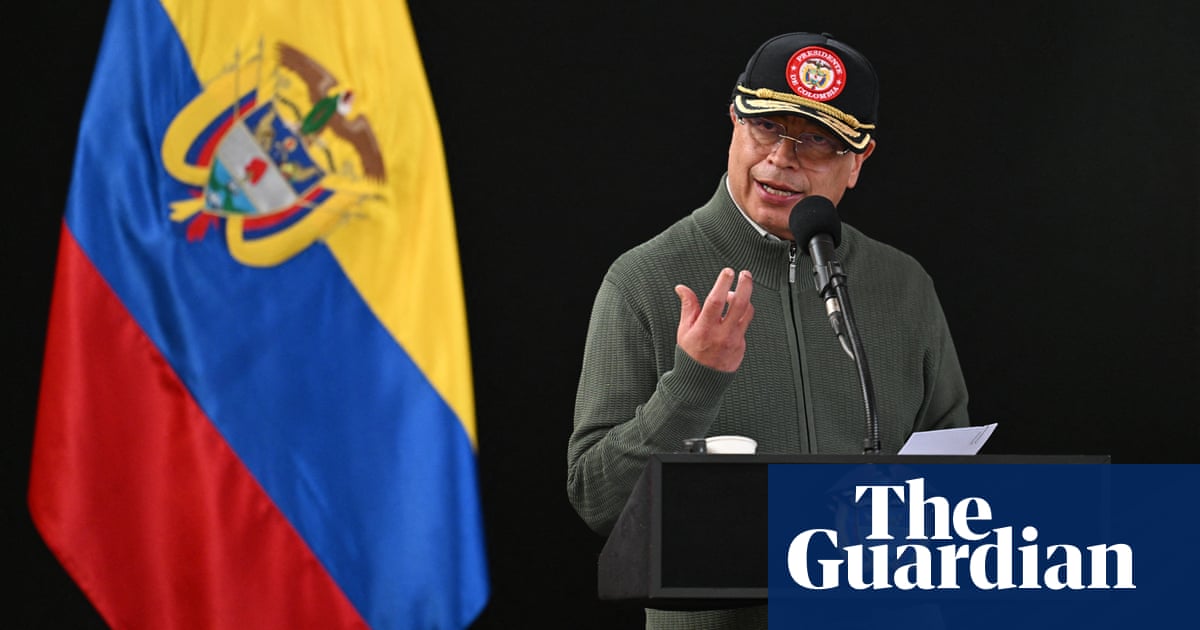A prominentColombianpolitician and former minister has accused the country’s president, Gustavo Petro, of being a drug addict who allegedly went awol during an official visit to France.
In a damning letter to the South American leader, the former foreign minister Álvaro Leyva painted a dire picture of his one-time boss and ally, later publishing the text on his official X account.
When he joined Petro’s cabinet, shortly after his historic 2022 election, Leyva recalled having high hopes for his administration believing Colombia’s first leftwing president could become a “regional leader and global hope”.
However, Leyva said he had subsequently witnessed scenes that had caused him “unease and bewilderment”, citing the president’s supposedly poor punctuality, incoherent statements and the pointless trips he allegedly made.
Most sensationally, the ex-minister claimed he had witnessed unspecified “embarrassing moments” involving Petro such as when – during a 2023 trip to France – Colombia’s president allegedly “disappeared” for two days.
“It was in Paris that I was able to confirm that you had a drug addiction problem … Your recovery, sadly, has not taken place,” wrote Leyva, who was once close to Colombia’s leftist leader despite being of the right and served under him for nearly two years.
Petro, who has denied such claims in the past, hit back at his former ally on social media, although he stopped short of denying the accusation. Writing on X, where he is known for his lengthy and sometimes late-night posts, Petro criticized the press and said he had better things to do than spend time with his foreign minister while visiting the French capital.
“Isn’t Paris full of parks, museums, bookstores, more interesting than the letter’s writer, to spend two days in? Almost everything in Paris is more interesting. Don’t I have daughters and granddaughters in Paris who are far more interesting than the writer?” Petro wrote.
Leyva’s letter sparked a political firestorm in Colombia, with newspapers stamping his claims across their homepages.
Writing in El Tiempo, the journalist Juan Sebastián Lombo Delgado, said that never before in recent Colombian history had a key ex-member of the government publicly questioned “the faculties” of his former boss.
Congresswoman Katherine Miranda told the same newspaper the “grave” accusations would be irrelevant “if we were talking about any old person – but we are talking about the head of state”.
In 2023, after similar allegations from a Colombian journalist, Colombia’s president responded: “The only thing I am addicted to is a morning coffee.”
Earlier this year Petro claimed cocaine – a drug Colombia produces more of than any other country – was “no worse than whiskey” and was only illegal because it was made in Latin America. Cocaine production has soared since he took office nearly three years ago. According to the UN office on drugs and crime there wasa 53% potential increasein cocaine production during 2022, with production reaching 2,664 metric tons.
The claims came as Petro again locked horns with Donald Trump, with whom he had avery public falling out earlier this year over deportation flights.
The row between Petro and Trump began at 3.41am local time in Colombia, on 26 January, when the former took to X to condemn the US’s treatment of Colombian migrants and announce he would not allow US planes to land in his country.
Trump responded swiftly and ferociously, threatening visa restrictions and tariffs unless Petro backed down, which he quickly did.
On Tuesday, Petro said he believed the US had now “taken away” his visa and claimed he could no longer travel there. “I’ve already seen Donald Duck numerous times so I’ll go see other things,” he added sarcastically.
